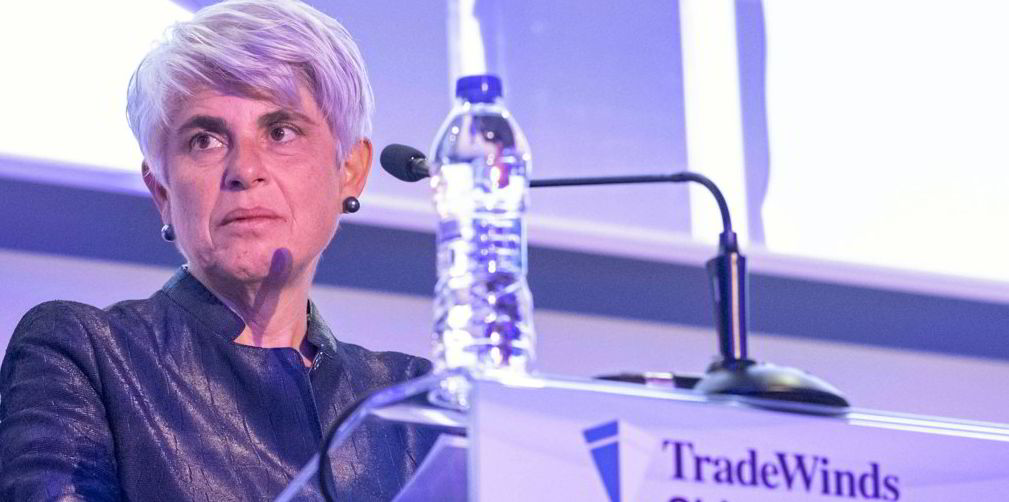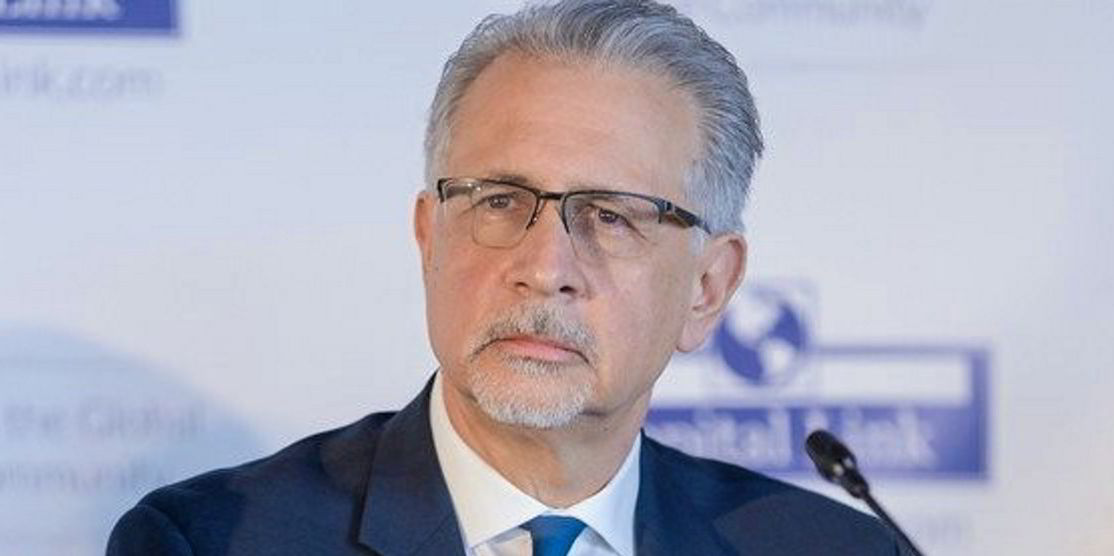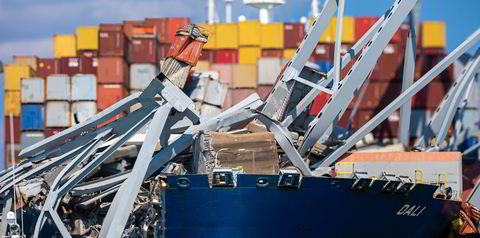Navios Maritime Partners will be a more resilient company with “cash machine” potential that can narrow the gap between its share price and net asset value (NAV) after an $835m deal added 36 ships to its fleet.
That is the conclusion of analysts after the shipowner forged the transaction to buy all the bulkers in the fleet of parent Navios Maritime Holdings, creating the second-largest US-listed maritime company with an uncommon diversity of bulkers, tankers and container ships.
Navios Partners also unveiled a $100m programme to buy back its shares.
The moves led its shares to surge nearly 23% on the New York Stock Exchange, from $24.73 before the announcement to $30.34 by Monday afternoon.
Fearnley Securities analysts Ulrik Mannhart and Oystein Vaagen said the fleet purchase and share buyback were both “awaited milestones” for the “new” Navios Partners, which has been a vehicle for consolidating the shipping fleets of Angeliki Frangou-backed Navios Group that had once been divided among a menagerie of listed spin-offs.
Both will help narrow the gap between NAV and its share price.
The purchase of Navios Holdings’ fleet swept aside a key concern of shareholders.
“The former milestone was one out of a handful of plausible resolutions for [Navios Holdings’] impending debt burden, which we argue has imposed an overhang on the [Navios Partners] share due to investors’ fear of a potential dilutive rescue operation including a merger or issuance of new shares,” the Fearnleys analysts said.
Both Navios companies in the transaction have Frangou as chief executive and a major shareholder.

Navios Partners’ earnings results also showcased the company’s “cash machine potential”, Mannhart and Vaagen wrote.
The Piraeus-based company reported a second-quarter net income of more than $118m, up from $99.9m in the same period last year.
36
The number of Navios Maritime Holdings vessels, made up of 26 owned ships and 10 bareboat chartered vessels, acquired by Navios Partners.
188
The number of ships in the Navios Partners fleet when the deal closes, not including newbuildings.
$835m
The total acquisition price, including the assumption of nearly $442m in debt, bareboat leases and capital leases.
$395m
The $175m that Navios Partners had in cash at the end of the second quarter plus the $220m from a recent container ship sale, which Jefferies said should be enough to finance the cash portion of the purchase.
Adjusted earnings per share of $3.84 were just shy of analyst expectations calling for $3.87.
Omar Nokta, Jefferies’ new shipping analyst, said the diversification of Navios Partners’ fleet allows it to navigate through shipping’s cycles “in stronger fashion” than its previous family of separate Navios entities could do before.
With the addition of the 26 owned ships and 10 on bareboat charter, the company will have 90 bulkers, 49 container ships and 49 tankers, in addition to 22 newbuildings when the transaction closes.
“The company is the first of its kind in the US public markets with a critical mass across the three main shipping segments,” Nokta said.
Navios Holdings’ shares also reacted positively to the deal.
After closing at $2.15 before the deal was announced, its stock price jumped to $2.37 in late afternoon trading on Monday.
No analysts have weighed in on the transaction, which leaves the company with a majority stake in Navios South American Logistics and a 10.3% slice in Navios Partners.
But the deal cleared a major overhang for Navios Holdings by allowing it to pay off $80m in bonds that were scheduled to come due in August.
Read more
- Navios Maritime Holdings’ new focus: growing its South American logistics business
- Editor’s Selection: Navios consolidates, DSME’s woes and Europe’s FSRU capacity crunch
- Navios shares rocket from starting gate as investors embrace acquisition
- Navios Partners scores new loans as revenue surge lifts quarterly profit
- Navios Partners to follow big acquisition with $100m stock buyback plan
- Navios Partners swells further with $835m purchase of parent company’s 36 bulkers





